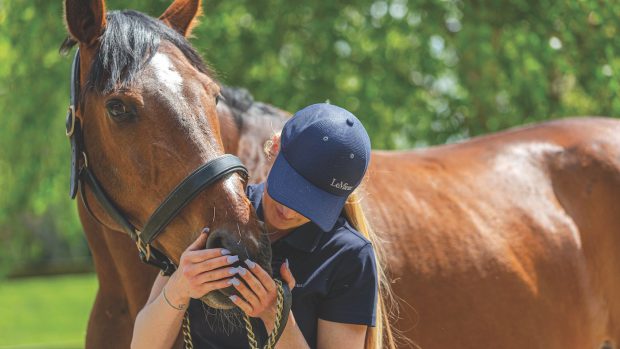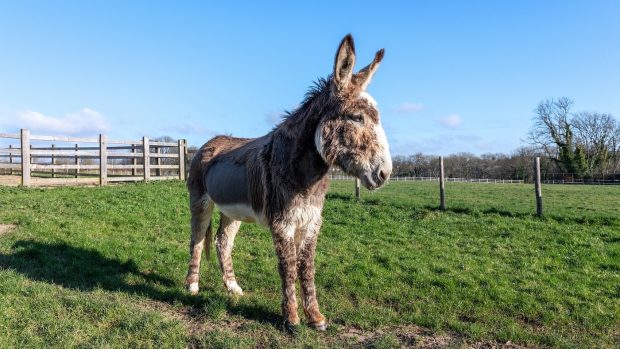Vets are warning owners to act now to avoid an increase in colic cases, which occurred during last January and February’s snowfalls.
Practices around the UK are witnessing more colic cases as a result of the snow, ice and frost.
“We usually have about one case of colic a weekend, but last weekend we had six, which isn’t a massive surprise in this weather,” said Anna Hollis from Scott Dunn’s Equine Clinic in Wokingham, Berks.
She’s also aware of more cases of laminitis.
“Although this is usually thought of as a spring problem, we are seeing more in this weather, possibly due to the frozen ground, but we don’t know exactly why,” she added.
Keith Chandler from Kessock Equine Vets in Inverness, where there is heavy snow, says the practice is usually called to about two cases of colic a month. But they have treated around half a dozen in the past fortnight.
“Up here horses can’t get out at all, so we’re seeing more cases due to the change in routine — a fitter horse is a healthier horse,” he said.
He warned coughs are on the increase, too, due to the extra time being stabled.
Tim Greet from Rossdales Equine Hospital in Newmarket added: “Horses are less likely to be exercised in bad weather — and as the gastro-intestinal tract is related to limb movement, this can slow down and get impacted.”
“Horses evolved to graze 23½ hours out of 24, so we advise getting them out as much as you can,” he said.
“Owners need to be aware,” warned H&H veterinary consultant Karen Coumbe. “If feed is going in the front end but not coming out the back, there’s a blockage and a problem.
“Large colon impactions are the second most common reported cause of colic in horses,” she explained.
“One study showed that more than 50 per cent of cases had a change in routine, such as increased stabling in the two weeks prior to an impaction developing.
“Make sure your horse drinks plenty, is fed less grain while kept in and has a non-edible bed. If exercise is possible, it helps, even just a gentle walk around the yard, school or frosty field.”
Rowena Cook, who runs the Retraining of Racehorses helpline, said she’s noticed a rise in calls about colic.
“We had two this weekend and, if the bad weather continues, I’m sure there will be several more,” she said.
Bedfordshire-based Carol Phillips’ horse showed mild colic signs after being turned out all day on the frozen grass.
“It hasn’t affected him in the past, but he hadn’t been drinking as much as normal due to his buckets freezing overnight and was clearly quite uncomfortable,” she said.
“We’ve been insulating his waterbuckets and adding hot water in the evening, and we have not had any problems since.”
Another reader, who didn’t want to be named, was not so fortunate and lost her four-year-old to spasmodic gas colic on 29 November.
“In anticipation of the cold weather, we had already beefed up his fibre and thought of ways to keep him hydrated, because this fellow was not a very keen drinker,” she said.
But most readers said they were coping well.
“We’re digging the yard out every day and our horses are still being turned out, though we’re taking water up to the field in the Land Rover,” said H&H reader Dawn McCormack from Northumberland.
Helen Kenward has moved her horses to a facility with indoor arenas in Bucks.
“Colic is my greatest fear, but we’re trying to keep their normal routine,” she said.
And Mandy Hall, also from Northumberland, is feeding electrolytes and lukewarm water to try to prevent dehydration.
“They are also turned out twice a day, which helps to keep things moving inside, and I am keeping an eye on their droppings,” she added.
This article was first published in the current issue of Horse & Hound, 9 December 2010




